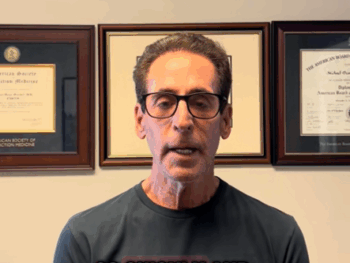Cocaine is a very powerful addictive stimulant, it comes as a crystal white powder and is usually snorted through the nose or rubbed into their gums. Cocaine use is extremely dangerous due to street dealers mixing cocaine with stuff suck as cornstarch, talcum powders and other flours to increase profits. However, cocaine use is extremely dangerous due to the increased use of mixing cocaine with synthetic opoids including fentanyl. There have been an alarming amount of overdoses due to fentanyl that can be found in street drugs. The increasing number of overdose deaths among coke users is directly related to adding fentanyl. If you know anyone who is a coke user even if just socially, it can result in death. Please make this clear to everyone you know,
How Does Cocaine Affect The Brain?
According to Drugabuse.gov
Cocaine increases levels of the natural chemical messenger dopamine in brain circuits related to the control of movement and reward.
Normally, dopamine recycles back into the cell that released it, shutting off the signal between nerve cells. However, cocaine prevents dopamine from being recycled, causing large amounts to build up in the space between two nerve cells, stopping their normal communication. This flood of dopamine in the brain’s reward circuit strongly reinforces drug-taking behaviors. With continued drug use, the reward circuit may adapt, becoming less sensitive to the drug. As a result, people take stronger and more frequent doses in an attempt to feel the same high, and to obtain relief from withdrawal.
Short-Term Effects
Short-term health effects of cocaine include:
- extreme happiness and energy
- mental alertness
- hypersensitivity to sight, sound, and touch
- irritability
- paranoia—extreme and unreasonable distrust of others
Some people find that cocaine helps them perform simple physical and mental tasks more quickly, although others experience the opposite effect. Large amounts of cocaine can lead to bizarre, unpredictable, and violent behavior.
Cocaine's effects appear almost immediately and disappear within a few minutes to an hour. How long the effects last and how intense they are depend on the method of use. Injecting or smoking cocaine produces a quicker and stronger but shorter-lasting high than snorting. The high from snorting cocaine may last 15 to 30 minutes. The high from smoking may last 5 to 10 minutes.
What are the other health effects of cocaine use?
Other health effects of cocaine use include:
- constricted blood vessels
- dilated pupils
- nausea
- raised body temperature and blood pressure
- fast or irregular heartbeat
- tremors and muscle twitches
- restlessness
Long-Term Effects
Some long-term health effects of cocaine depend on the method of use and include the following:
- snorting: loss of smell, nosebleeds, frequent runny nose, and problems with swallowing
- smoking: cough, asthma, respiratory distress, and higher risk of infections like pneumonia
- consuming by mouth: severe bowel decay from reduced blood flow
- needle injection: higher risk for contracting HIV, hepatitis C, and other bloodborne diseases, skin or soft tissue infections, as well as scarring or collapsed veins
However, even people involved with non-needle cocaine use place themselves at a risk for HIV because cocaine impairs judgment, which can lead to risky sexual behavior with infected partners (see "Cocaine, HIV, and Hepatitis" textbox).
Other long-term effects of cocaine use include being malnourished, because cocaine decreases appetite, and movement disorders, including Parkinson’s disease, which may occur after many years of use. In addition, people report irritability and restlessness from cocaine binges, and some also experience severe paranoia, in which they lose touch with reality and have auditory hallucinations—hearing noises that aren't real.
Can a person overdose on cocaine?
Yes, a person can overdose on cocaine. An overdose occurs when a person uses enough of a drug to produce serious adverse effects, life-threatening symptoms, or death. An overdose can be intentional or unintentional.
Death from overdose can occur on the first use of cocaine or unexpectedly thereafter. Many people who use cocaine also drink alcohol at the same time, which is particularly risky and can lead to overdose. Others mix cocaine with heroin, another dangerous—and deadly—combination.
Some of the most frequent and severe health consequences of overdose are irregular heart rhythm, heart attacks, seizures, and strokes. Other symptoms of cocaine overdose include difficulty breathing, high blood pressure, high body temperature, hallucinations, and extreme agitation or anxiety.
How can a cocaine overdose be treated?
There is no specific medication that can reverse a cocaine overdose. Management involves supportive care and depends on the symptoms present. For instance, because cocaine overdose often leads to a heart attack, stroke, or seizure, first responders and emergency room doctors try to treat the overdose by treating these conditions, with the intent of:
- restoring blood flow to the heart (heart attack)
- restoring oxygen-rich blood supply to the affected part of the brain (stroke)
- stopping the seizure
How does cocaine use lead to addiction?
As with other drugs, repeated use of cocaine can cause long-term changes in the brain’s reward circuit and other brain systems, which may lead to addiction. The reward circuit eventually adapts to the extra dopamine caused by the drug, becoming steadily less sensitive to it. As a result, people take stronger and more frequent doses to feel the same high they did initially and to obtain relief from withdrawal.
Withdrawal symptoms include:
- depression
- fatigue
- increased appetite
- unpleasant dreams and insomnia
- slowed thinking
Cocaine Nose:
Also known as coke nose, is when a septum starts to get eaten away by the cocaine resulting in a hole in the septum.
Snorting cocaine can cause permanent serious damage to the nose. Results are extremely dangerous and can range from sinus infections and bloody nose to a hole in the nose, specifically the septum.
WebMD 4 Possible Signs of Nose Damage From Cocaine Use
A coke addict’s nose may suffer many problems, ranging from nosebleeds to life-threatening infections.
Snorting powdered cocaine offers a quick, needle-free high. It also increases the risk of damage to the nose and sinuses, especially with prolonged use.
Treatment for Cocaine Addiction:
Cocaine Addiction is a SUD also known as Substance Use Disorder. We are experts in the field of helping our patients be sober and getting their lives back. Treatment for cocaine addiction is not black or white, every patient’s SUD with cocaine is different and we tailor each treatment to the patients needs to maintain their sobriety.











